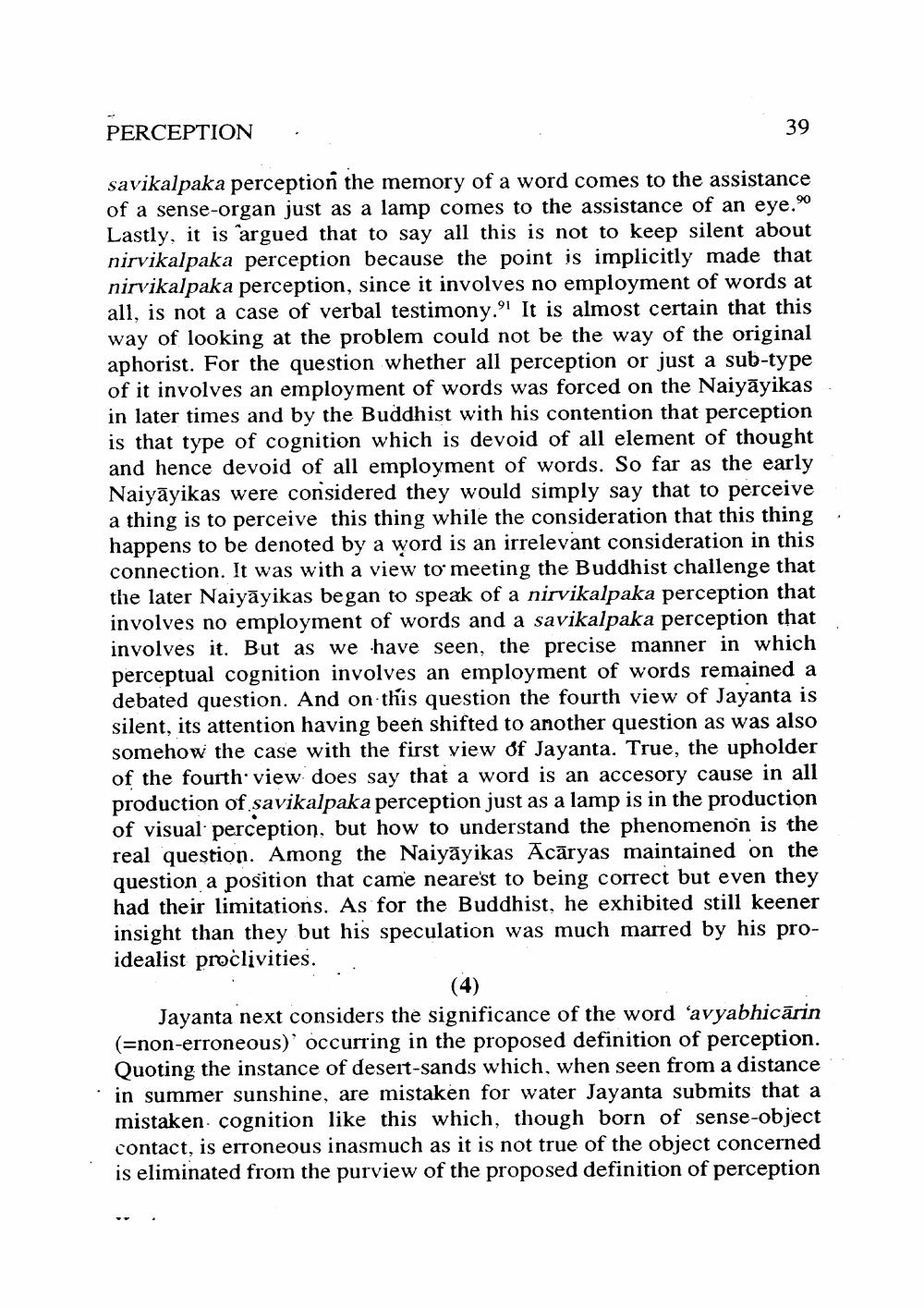________________
PERCEPTION
39
savikalpaka perception the memory of a word comes to the assistance of a sense-organ just as a lamp comes to the assistance of an eye.” Lastly, it is argued that to say all this is not to keep silent about nirvikalpaka perception because the point is implicitly made that nirvikalpaka perception, since it involves no employment of words at all, is not a case of verbal testimony. It is almost certain that this way of looking at the problem could not be the way of the original aphorist. For the question whether all perception or just a sub-type of it involves an employment of words was forced on the Naiyāyikas in later times and by the Buddhist with his contention that perception is that type of cognition which is devoid of all element of thought and hence devoid of all employment of words. So far as the early Naiyāyikas were considered they would simply say that to perceive a thing is to perceive this thing while the consideration that this thing happens to be denoted by a word is an irrelevant consideration in this connection. It was with a view to meeting the Buddhist challenge that the later Naiyāyikas began to speak of a nirvikalpaka perception that involves no employment of words and a savikalpaka perception that involves it. But as we have seen, the precise manner in which perceptual cognition involves an employment of words remained a debated question. And on this question the fourth view of Jayanta is silent, its attention having been shifted to another question as was also somehow the case with the first view of Jayanta. True, the upholder of the fourth view does say that a word is an accesory cause in all production of savikalpaka perception just as a lamp is in the production of visual perception, but how to understand the phenomenon is the real question. Among the Naiyāyikas Acāryas maintained on the question a position that came nearest to being correct but even they had their limitations. As for the Buddhist, he exhibited still keener insight than they but his speculation was much marred by his proidealist proclivities.
Jayanta next considers the significance of the word 'avyabhicārin (=non-erroneous)' occurring in the proposed definition of perception. Quoting the instance of desert-sands which, when seen from a distance in summer sunshine, are mistaken for water Jayanta submits that a mistaken. cognition like this which, though born of sense-object contact, is erroneous inasmuch as it is not true of the object concerned is eliminated from the purview of the proposed definition of perception




